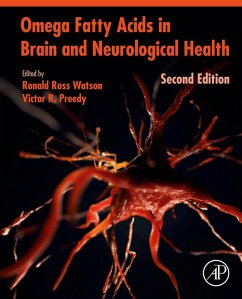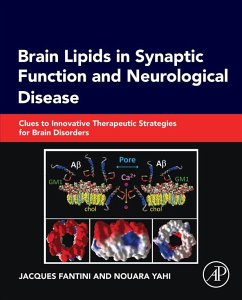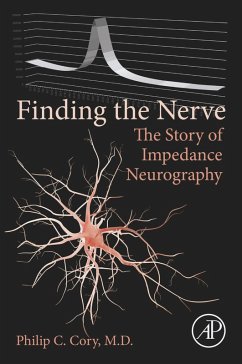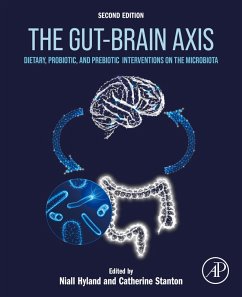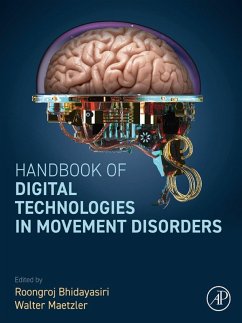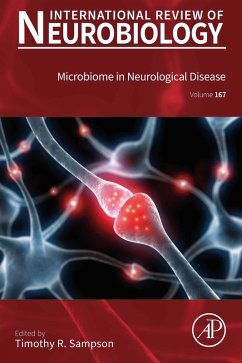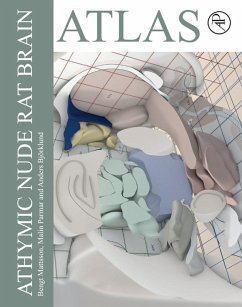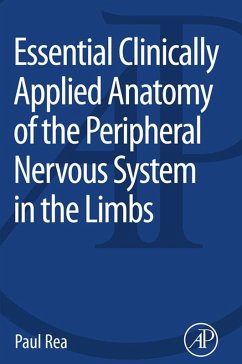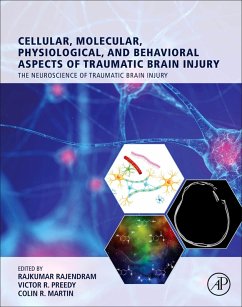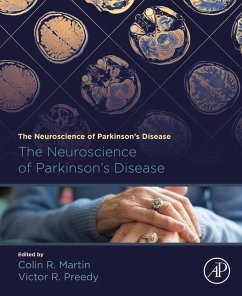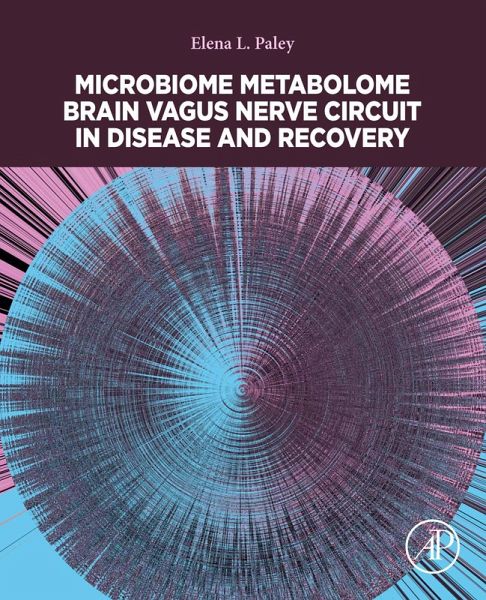
Microbiome Metabolome Brain Vagus Nerve Circuit in Disease and Recovery (eBook, ePUB)
Versandkostenfrei!
Sofort per Download lieferbar
95,95 €
inkl. MwSt.
Weitere Ausgaben:

PAYBACK Punkte
48 °P sammeln!
Microbiome Metabolome Brain Vagus Nerve Circuit in Disease and Recovery focuses on the emerging hypothesis of a dysfunctional microbiome metabolome vagus nerve brain circuit in Alzheimer's disease and associated diseases and medical conditions, including dementia, aging, COVID-19, autoimmune conditions, and inflammatory skin condition rosacea, which may increase the risk of other conditions. This book also discusses the vagus nerve-related conditions, including Arnold's reflex, laryngopharyngeal reflux, duodenogastric reflux, gastroesophageal reflux, and related pulmonary diseases. The subject...
Microbiome Metabolome Brain Vagus Nerve Circuit in Disease and Recovery focuses on the emerging hypothesis of a dysfunctional microbiome metabolome vagus nerve brain circuit in Alzheimer's disease and associated diseases and medical conditions, including dementia, aging, COVID-19, autoimmune conditions, and inflammatory skin condition rosacea, which may increase the risk of other conditions. This book also discusses the vagus nerve-related conditions, including Arnold's reflex, laryngopharyngeal reflux, duodenogastric reflux, gastroesophageal reflux, and related pulmonary diseases. The subjects covered in the book also address an important question of which one is more important for human health and intellectual abilities: the human genome or the human microbiome? The conceptual model of food and gut microbial tryptamine vagus nerve circuit is also presented in this book. - Addresses the emerging hypothesis of a dysfunctional microbiome vagus nerve brain circuit in Alzheimer's disease and associated diseases and medical conditions - Covers dementia, aging, COVID-19, autoimmune conditions, and inflammatory skin condition rosacea - Presents the conceptual model of food and gut microbial tryptamine vagus nerve circuit - Covers human health and intellectual abilities in the context of both the human genome and the human microbiome
Dieser Download kann aus rechtlichen Gründen nur mit Rechnungsadresse in A, B, BG, CY, CZ, D, DK, EW, E, FIN, F, GR, HR, H, IRL, I, LT, L, LR, M, NL, PL, P, R, S, SLO, SK ausgeliefert werden.




